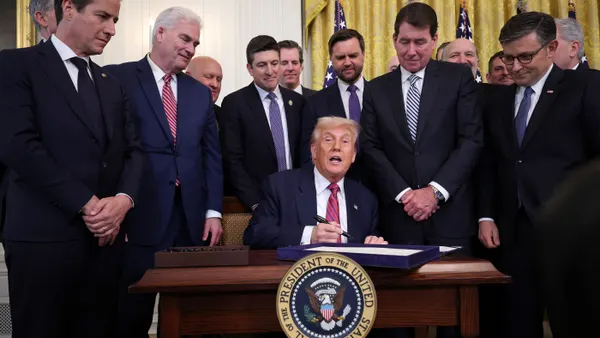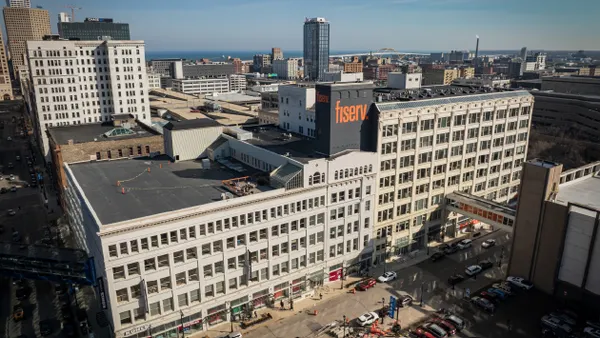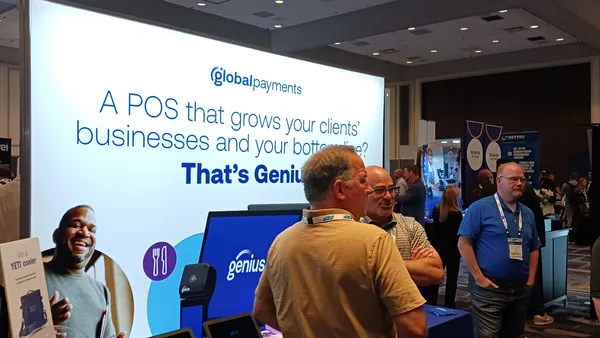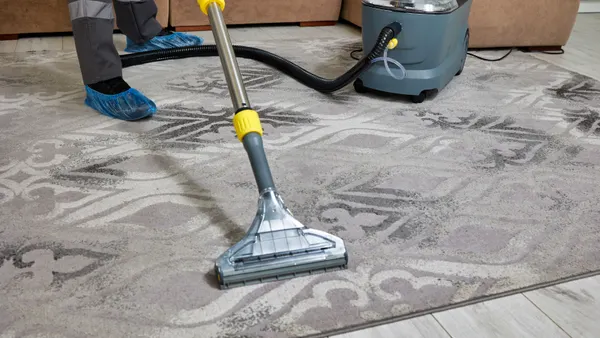PayPal has been one of the few benefactors of the COVID-19 landscape, as consumers were forced to pivot from in-person contact and conduct most transactions virtually. But the company isn't lowering its expectations as the end of the pandemic grows near; rather, it forges ahead on ambitious, long-term goals.
For a company with confidence in its consumer base, setting the bar high is the logical next step, PayPal CFO John Rainey told Barron's this week.
The company has ballooned in valuation nearly 150% over the past 12 months, CEO Dan Schulman said. In its most recent quarter, it tripled its profits and, over the holiday season, processed over 1,000 payments per second.
The virtual payments processor does not anticipate a drop in business as the pandemic recedes; rather, it intends to roughly double active accounts to 750 million from its current 377 million, and triple total payment volume to $2.8 trillion from $936 billion in the coming years, Barron's reported.
The growth mindset is a credit to PayPal's diversification, Rainey said, and the likelihood of customer retention, even when brick-and-mortar stores reopen fully.
"We recognized this is an inflection point for digital payments, and we're investing into that," Rainey said, adding that the success of recent innovations, like QR code contactless payments and buy now, pay later options "will be measured over years, not quarters."
Eye on partnerships
Before the pandemic, PayPal was considering partnerships with Uber Technologies and Live Nation Entertainment. Revisiting the agreements would prove much more valuable post-COVID, and would offer greater incentives for customers to stick with PayPal once other options arise, he said.
The pandemic has hastened what was already inevitable: the prevalence of omnichannel retailing. "The pandemic turned an online channel from a ‘nice-to-have to an imperative," Rainey said.
Moves by large, public retailers, including Walmart, Target and lululemon to reorient their storefronts as fulfillment hubs prove that online shopping "is not a transitory phenomenon," he said. "The distinction between online and offline has been erased ... retailers need to provide digital-first experiences."
Always expanding
Even after a landmark year for the company, Rainey said there remains a plethora of unmet opportunities.
In Asia, nearly half of in-store purchases are made with a digital wallet, compared with less than 10% domestically, he told Barron's. Even so, Americans are likely to move in the same direction, after the pandemic has proven "the ease of eschewing cash," he said. "Of the many things I look forward to doing after the pandemic, going to an ATM is not one of them."
Rainey hopes to bring PayPal's hallmark features of safety, security and convenience to more markets, he said, and to expand beyond its base of "digital-savvy millennials" to new communities, including the underbanked, and new frontiers, like cryptocurrency, in which the company has already begun dabbling.
Services like PayPal, which secures and simplifies payments, won't be a flash in the pan, because they demonstrably improve its users' lives, Rainey concluded. "If it's a much better experience, why ever go back?"












